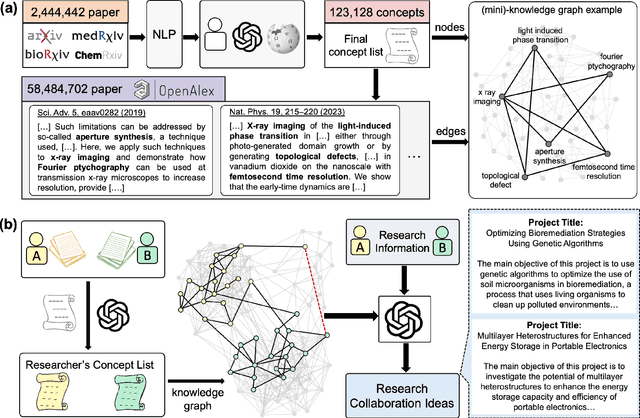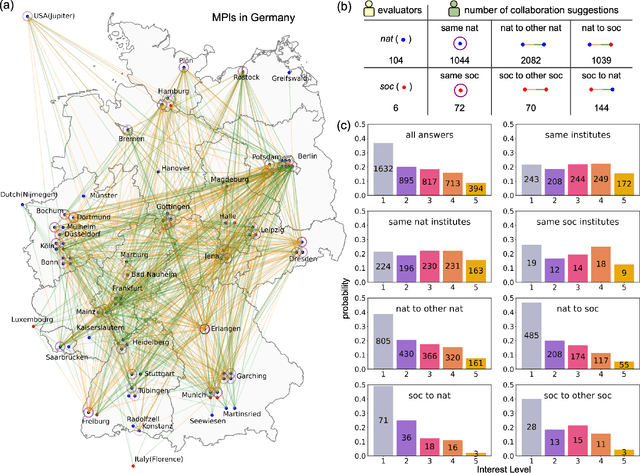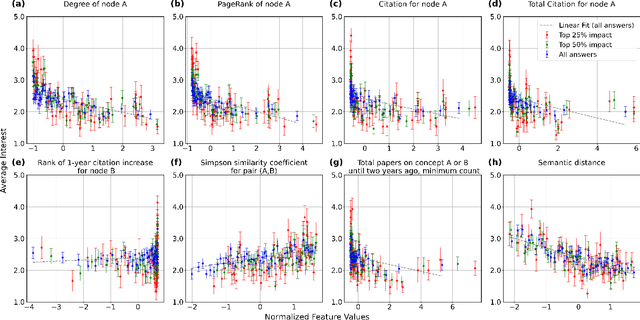Generation and human-expert evaluation of interesting research ideas using knowledge graphs and large language models
Paper and Code
May 27, 2024



Advanced artificial intelligence (AI) systems with access to millions of research papers could inspire new research ideas that may not be conceived by humans alone. However, how interesting are these AI-generated ideas, and how can we improve their quality? Here, we introduce SciMuse, a system that uses an evolving knowledge graph built from more than 58 million scientific papers to generate personalized research ideas via an interface to GPT-4. We conducted a large-scale human evaluation with over 100 research group leaders from the Max Planck Society, who ranked more than 4,000 personalized research ideas based on their level of interest. This evaluation allows us to understand the relationships between scientific interest and the core properties of the knowledge graph. We find that data-efficient machine learning can predict research interest with high precision, allowing us to optimize the interest-level of generated research ideas. This work represents a step towards an artificial scientific muse that could catalyze unforeseen collaborations and suggest interesting avenues for scientists.
 Add to Chrome
Add to Chrome Add to Firefox
Add to Firefox Add to Edge
Add to Edge